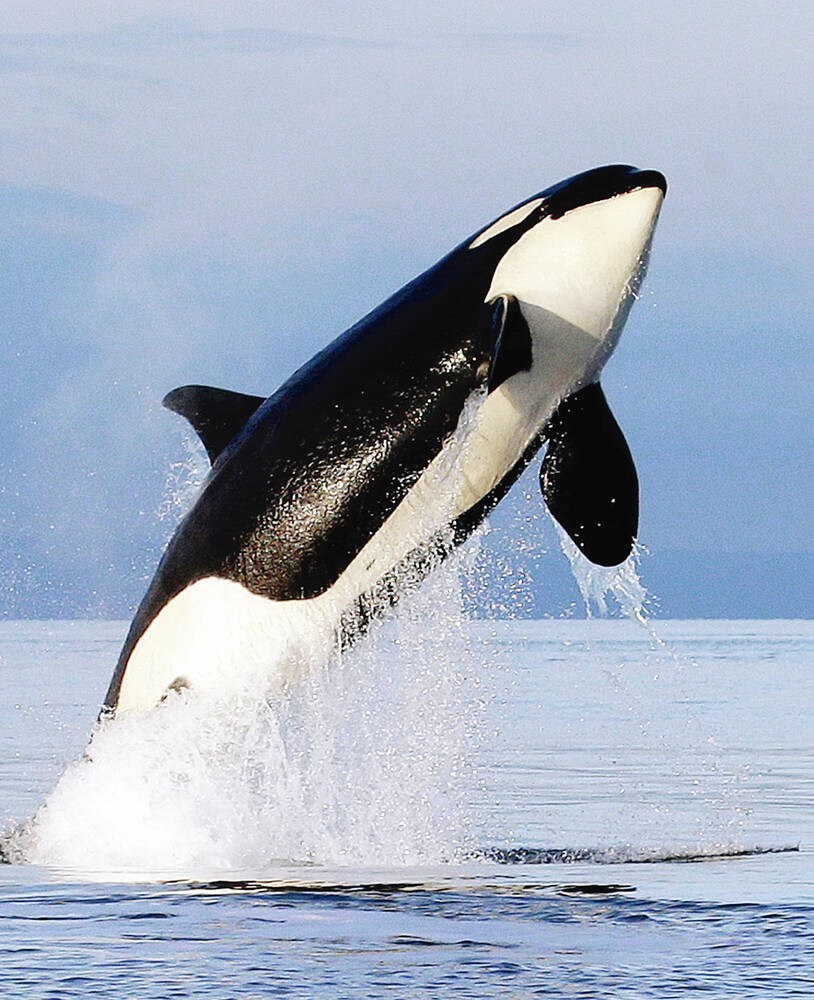A commentary by a biologist with the nonprofit Wild Fish Conservancy in Duvall, Washington, who has led research of river-based, sustainable salmon harvesting methods throughout British Columbia, Washington, and Oregon.
At last, we have acknowledged the elephant in the room that is starving the southern resident killer whales and driving both orcas and wild salmon toward extinction in plain sight — ocean-based salmon fisheries.
Long held at arm’s-length by politicians and fisheries managers due to the relentless sway of industry, excessive harvesting of chinook salmon in the ocean was finally accredited to the starvation of the region’s endangered resident orcas that rely almost solely on chinook for survival.
Last month, news media outlets reported on newly published science, from which the logical, but contentious, solution of fisheries reform was recognized as the most tangible means to immediately stabilize the southern resident killer whale population.
“Increased abundance and quality of prey within southern resident killer whale critical habitat can be realized by changing fishing practices,” said the authors.
“Moving Pacific Salmon Treaty fisheries in Alaska and B.C. away from chinook salmon rearing grounds and migration routes into terminal river and estuarine locations results in an immediate increase of chinook in critical habitat of up to 25 per cent” — more than enough to stabilize the orca population and provide a path forward to recovery.
Now that this common-sense solution has escaped smoke-filled rooms into the public eye, let there be no more denial. To save the southern residents and our wild salmon from extinction, we must reform ocean-based salmon fisheries.
Given the compromised status and ecology of these keystone species, ocean-based salmon fisheries cannot be managed sustainably to accommodate southern resident killer whale and wild salmon recovery.
After salmon hatch in their home rivers across the West Coast, the vast majority migrate to marine waters offshore of southeast Alaska for foraging. Salmon of various species, populations, ages, and sexes comingle in this ocean nursery.
Some populations remain abundant; many are the result of artificial production in hatcheries; others are teetering on the brink of extinction.
When fisheries managers enable industrial-scale ocean harvesting, we have no means of protecting endangered salmon that are mixed within fisheries. This makes it impossible to ensure that sufficient numbers of wild fish can migrate home from sea, pass through southern resident killer whale critical habitats, return to freshwater spawning grounds, and give rise to a new generation.
As communities invest millions to restore salmon habitats, individual wild salmon populations are blinking out of existence far from home in unsustainable fisheries.
While wild salmon abundance and diversity declines from mixed-stock harvesting, so too does the age and size-structure of these populations. Since the 1920s, the average chinook has shrunk by about 50 per cent.
Ocean-based fisheries undermine salmon recovery, moreover, they directly starve the southern residents that are left with a fraction of the prey that they would otherwise have if our resource managers reformed harvesting.
As recent science suggests, pausing ocean-based chinook fisheries in Alaska and B.C. would immediately increase chinook abundance for southern resident killer whales by 25 per cent. If changes were made in southeast Alaska alone, prey abundance would increase by eight per cent. Relative to other conservation actions, this is huge.
Given these findings, no solution is as tangible and significant as reforming ocean-based chinook fisheries for southern resident killer whale recovery. No other alternative — habitat restoration, dam removal, or hatcheries — can immediately provide the starving whales with the prey they need at this critical moment of survival or extinction.
The benefits of harvest reform to southern resident killer whales and wild salmon would be instantaneous; in contrast, hatchery production takes time and undermines wild salmon recovery.
Understanding this, we must pause ocean-based chinook harvesting and support a transition toward river-based salmon fisheries and sustainable fishing practices.
The public must take the lead in demanding this common-sense solution, and then be prepared for pushback from industry and fisheries managers that will inevitably obfuscate the issue to preserve the status-quo.
If we stand firm and stabilize southern resident killer whales through the only means available (harvest reform), habitat restoration can eventually improve conditions for long-term recovery.
As the latest science suggests, hope for recovery remains. However, the longer we wait to act, the larger the social cost, and the greater risk that our recovery investments will fail orcas, wild salmon, and all future generations.
>>> To comment on this article, write a letter to the editor: [email protected]



